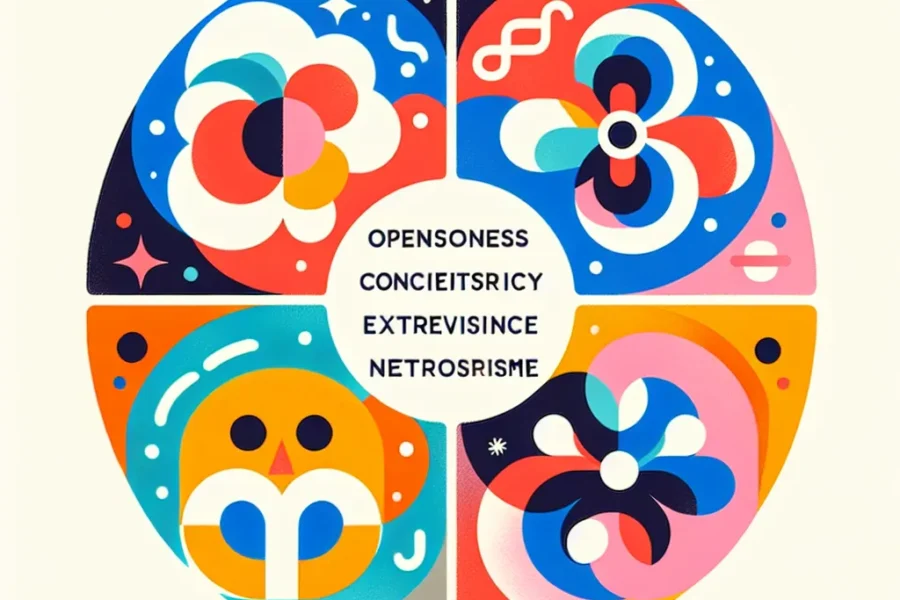Jean Piaget, a Swiss psychologist, has been widely recognized as one of the most significant figures in modern psychology. His pioneering work in the field of cognitive development revolutionized the understanding of children’s intellectual growth and learning processes, laying the foundation for contemporary educational psychology.
Piaget’s profound impact on psychology started in the early 20th century, a time when the discipline was dominated by behaviorists who focused on observable behaviors rather than internal cognitive processes. Piaget’s interest in cognitive development began with his work on standardizing intelligence tests for children, which led him to notice that young children consistently gave wrong answers to certain questions. Intrigued by these patterns of errors, Piaget began a series of studies that would eventually formulate his theory of cognitive development.
Piaget’s Theory of Cognitive Development posits that children move through four distinct stages of mental growth: the sensorimotor stage, preoperational stage, concrete operational stage, and formal operational stage. These stages reflect the increasing sophistication of children’s thought processes from infancy to adolescence. His theory suggests that children are not just passive recipients of knowledge; instead, they actively construct their own understanding of the world through interactions with their environment.
The sensorimotor stage, spanning from birth to approximately two years of age, is characterized by an understanding of the world through physical interactions and experiences. Infants learn about their surroundings through sensory perceptions and motor activities. During this stage, children develop a sense of object permanence, realizing that objects continue to exist even when they are out of sight.
The preoperational stage, which unfolds between the ages of two to seven years, is marked by the development of language and the beginning of symbolic thought. Children at this stage are able to engage in pretend play and are learning to use symbols to represent objects. However, they still lack the ability to perform operations—a form of mental manipulation of objects—and struggle with understanding the viewpoints of others, a concept known as egocentrism.
During the concrete operational stage, occurring between ages seven and eleven, children gain a better grasp of logical thought, especially concerning concrete objects and events. They can understand the principle of conservation – the idea that quantity does not change despite changes in shape or appearance – and begin to think systematically about concrete relationships.
In the final stage, the formal operational stage, adolescents develop the ability to think abstractly and reason theoretically. By this point, individuals can perform hypothetical and deductive reasoning, and can understand and manipulate abstract concepts. This stage marks the culmination of cognitive development and provides the groundwork for adult-level thought processes.
Piaget’s contributions to modern psychology extend beyond his theory of cognitive development. His work also emphasized the importance of educational approaches that cater to the different stages of a child’s intellectual growth. He advocated for a child-centered education, where the role of the teacher is to facilitate learning by encouraging exploration and discovery, rather than by direct instruction alone. This approach has profoundly influenced contemporary educational practices, emphasizing the importance of adapting teaching methods to a child’s developmental level.
Moreover, Piaget’s research has informed various domains of psychology, including developmental psychology, genetic epistemology, and constructivism—each exploring different aspects of knowledge acquisition and cognitive growth. For instance, his constructivist view suggested that learning is a process where the learner builds new knowledge upon the foundation of previous experiences. This principle has been instrumental in shaping educational curricula and instructional strategies that allow for scaffolded learning where concepts are taught in an increasingly complex manner, respecting the learner’s cognitive development phase.
Piaget’s role in shaping modern psychology also includes his influence on subsequent theorists and researchers who have expanded upon his work. For example, Lawrence Kohlberg built on Piaget’s stages to develop his theory of moral development, while Lev Vygotsky introduced the social-cultural perspective, emphasizing the role of social interaction in the development of cognition.
Despite the lasting impact of Piaget’s theories, his work has not been without criticism. Some critics argue that Piaget’s stages are too rigid and that cognitive development is more continuous than stage-like. Others suggest that social and cultural factors play a more significant role in cognitive development than Piaget acknowledged. Nevertheless, contemporary research in developmental psychology often builds upon or reacts to Piaget’s foundational ideas, continuing to elevate their relevance within the field.
In conclusion, Jean Piaget’s role in shaping modern psychology has been monumental. His innovative research and ground-breaking theories of cognitive development have led to profound insights into how children learn and grow intellectually. His perspective has infiltrated educational philosophy, leading to pedagogical approaches that prioritize active learning and the consideration of the developmental stages. Piaget’s legacy endures, an indispensable cornerstone in the edifice of psychological science. His work continues to inspire and inform educators, researchers, and psychologists who seek to understand the complex nature of human cognitive development. Through his dedication to unraveling the mysteries of the mind, Piaget has indelibly shaped the course of modern psychology, solidifying his place as one of its most influential and visionary thinkers.



Leave a Comment